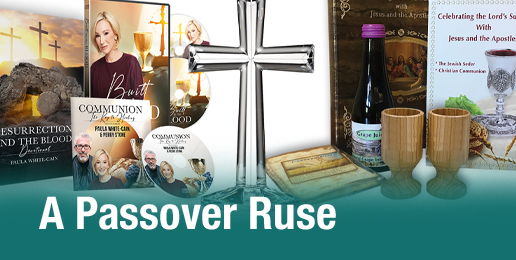
One of the more unusual forms of “work” in our world is that of an evangelist.
Ephesians 4:11–13 states,
“And he gave the apostles, the prophets, the evangelists, the shepherds and teachers, to equip the saints for the work of ministry, for building up the body of Christ, until we all attain to the unity of the faith and of the knowledge of the Son of God, to mature manhood, to the measure of the stature of the fullness of Christ.” (ESV)
The book of Acts specifically describes Philip as an “evangelist.” (Acts 21:8) Later in the New Testament, the apostle Paul instructs Timothy to do the work of an evangelist. (2 Timothy 4:5) Those three verses are the only three uses of the word evangelist in the Bible.
So what is the “work of an evangelist?” It can be reasonably stated that this “work” involves bringing the Good News to those who’ve yet to hear. And what is this good news? In a single word, Jesus.
Philip joined a traveling Ethiopian eunuch whom he met and baptized while this man was on the road from Jerusalem to Gaza. The eunuch was reading from the book of Isaiah and was perplexed by words regarding “the suffering servant.” Philip explained to him this was Jesus—the very Word of God. The man believed and asked to be baptized.
We have limited accounts of famous evangelists throughout church history. Our more modern church history of the “evangelical church” highlights missionaries who travel around the world with the Good News message.
Of course, there was Wheaton College graduate Billy Graham. His evangelistic crusades went well into six decades until his retirement in 2005. It’s estimated Billy Graham spoke to live audiences in excess of 210 million people, in more than 185 countries and territories.
His son, Franklin Graham, carries on the work of an evangelist.
Then there’s D.L. Moody. His ministry headquartered in Chicago, which began in the late 1800s, continues to bear fruit through the Moody Bible Institute, Moody Publishers, Moody Radio, and the several annual conferences they facilitate. Moody’s preaching alone drew hundreds of thousands of souls to Christ.
But there is another type of “evangelist” whose work is worth noting. That of the televangelist. The waters get a little muddy here.
People such as Jesse Duplantis, Benny Hinn, Oral Roberts, John Hagee and the like, often lean into healing and other “miraculous” messages well beyond presenting the Good News. Other “televangelist” outliers include Joel Osteen and Paula White. Ms. White has gained the confidence of President Donald Trump and now heads his White House Faith Office.
I would consider neither Joel nor Paula to be an “evangelist” in the biblical sense.
Here’s an example as to why. Leading up to Easter, Paula White released a video encouraging the celebration of Passover in order to receive seven supernatural blessings her followers could claim based on Exodus 23:14–30. Follow her instructions, and she says God will
(1) “assign an angel to you,”
(2) “be an enemy to your enemies,”
(3) “give you prosperity,”
(4) “take sickness away from you,”
(5) “give you a long life,”
(6) “bring increase and inheritance,” and
(7) “give a special year of blessing.”
On her website, Paula presents “two keys” that will unlock these blessings. The first is placing the blood of Jesus over your household. This instantly reminds us of the original Passover—with the blood of the Passover lamb described in Exodus 12. Those who painted lamb’s blood on their doorposts came under the Lord’s protection when the destroying angel came through Egypt on the night of the Passover.
For Christians, Jesus became our Passover lamb. To put our faith in Him yields sufficient covering for the forgiveness of our sins. All of them. Communion in the Christian church yields up this understanding of His sacrifice of body and blood. And His salvation offer is a free gift.
Not so with Ms. White.
Her second key to unlock the seven blessings involves giving money to her ministry. Oh please! This is an example of why people avoid televangelists.
While the Scriptures give us only three mentions of evangelist as a spiritual gifting and calling, it is clear that all followers of Jesus are called to the “work” of sharing the Good News (Jesus).
To draw people to Christ, we present Truth—not a Passover ruse. In light of the recent celebration of the risen Christ, may we find a renewed zeal for that work.
And a reminder that Jesus offers us the FREE gift of salvation through His death and resurrection!





















